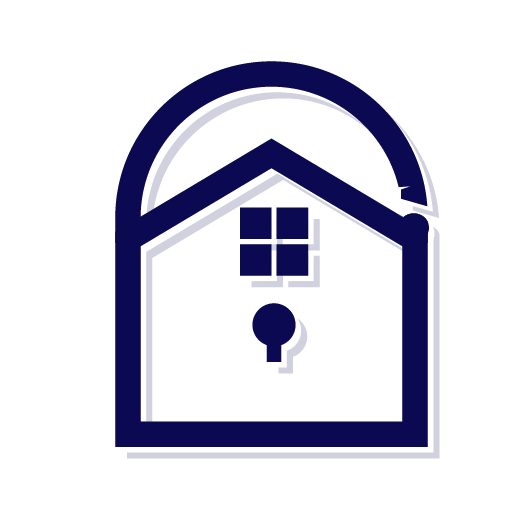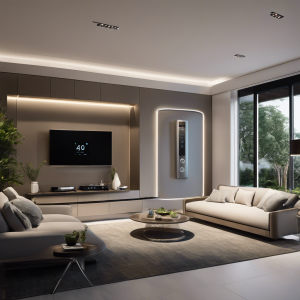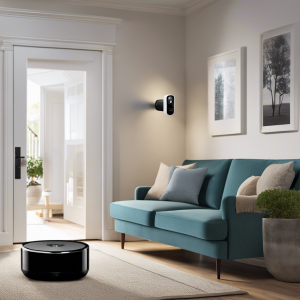In today’s world, ensuring the safety and security of our homes has become a top priority. With the plethora of options available in the market, choosing the right home security system can be a daunting task.
However, fear not, as this discussion aims to guide you through the process of selecting the perfect system for your needs. From assessing your security requirements to considering professional monitoring services, we will explore various factors that should influence your decision.
So, let us embark on this journey together, as we unravel the secrets to finding the ideal home security system that will bring you peace of mind.
Assess Your Security Needs
When considering a home security system, it is crucial to begin by assessing your unique security needs. This step is essential to ensure that you choose the right security system that meets your specific requirements. One of the first decisions you need to make is whether to opt for a DIY (Do-It-Yourself) installation or hire a professional.
DIY security system installation has become increasingly popular in recent years due to its affordability and convenience. With a DIY system, you have the flexibility to install the security devices yourself, saving on installation costs. There are many user-friendly DIY security systems available on the market that come with easy-to-follow instructions, making the installation process relatively straightforward. Additionally, DIY systems are often wireless, eliminating the need for extensive wiring throughout your home.
On the other hand, professional installation offers a higher level of expertise and assurance. Hiring a professional ensures that your security system is installed correctly and optimally positioned for maximum effectiveness. Professionals have the knowledge and experience to identify the most vulnerable areas of your home and strategically place sensors, cameras, and other security devices to provide comprehensive coverage. They can also offer guidance on the best security system options for your specific needs, taking into account factors such as the size and layout of your home, your lifestyle, and any potential security vulnerabilities.
Ultimately, the choice between DIY and professional installation depends on your comfort level, technical skills, and budget. While a DIY installation may be suitable for those who enjoy tackling home improvement projects and have a limited budget, a professional installation offers peace of mind and ensures that your security system is set up correctly and functioning optimally.
Determine Your Budget
To effectively plan for the installation of your chosen home security system, it is crucial to carefully determine and allocate your budget. Understanding your budget limitations will help you narrow down your options and choose a home security system that meets your needs without breaking the bank.
When it comes to home security systems, there are various cost-effective options available in the market. It is important to evaluate these options based on their features, reliability, and affordability. One way to determine the cost-effectiveness of a system is by comparing the upfront costs, monthly fees, and any additional expenses such as installation or maintenance fees.
Consider whether you want a professionally monitored system or a do-it-yourself (DIY) system. Professionally monitored systems typically require a monthly subscription fee, while DIY systems often have lower upfront costs and no monthly fees. However, DIY systems may require more technical knowledge and may not provide the same level of monitoring and support as professionally monitored systems.
Another cost-effective option to consider is a wireless home security system. Wireless systems eliminate the need for expensive and time-consuming wiring installations, making them more affordable and flexible. They also offer the advantage of easy relocation if you decide to move to a new home.
Before finalizing your budget, it is essential to do thorough research and read customer reviews to ensure that the system you choose is reliable and provides the level of security you require. Additionally, consider any potential future costs such as system upgrades or additional sensors that may be necessary to enhance your home’s security.
Research Different Types of Security Systems
To effectively evaluate the different types of security systems, it is important to thoroughly research their features, capabilities, and compatibility with your home’s infrastructure. This step is crucial in ensuring that you select a security system that meets your specific needs and provides the level of protection you desire.
As you begin your research, consider the following:
-
Benefits of DIY security systems: DIY (Do-It-Yourself) security systems have gained popularity in recent years due to their affordability and ease of installation. These systems allow homeowners to take control of their security measures and customize them according to their preferences. Additionally, DIY systems often come with mobile apps that enable remote monitoring and control, providing peace of mind even when you’re away from home.
-
Pros and cons of wired vs. wireless security systems: Wired security systems are known for their reliability and stability. They are hardwired into your home’s electrical system and typically require professional installation. On the other hand, wireless security systems offer more flexibility and are easier to install since they rely on wireless signals to communicate. However, they may be vulnerable to signal interference or hacking.
-
Integration with other smart home devices: Consider whether the security system you are researching integrates with other smart home devices such as smart locks, cameras, or voice assistants. This integration can enhance the overall security and convenience of your home.
-
Monitoring options: Look into the different monitoring options available for each security system. Some systems offer professional monitoring services, where a team of experts monitors your home 24/7 and alerts the authorities in case of an emergency. Others provide self-monitoring capabilities, allowing you to receive alerts directly on your mobile device.
-
Scalability and expandability: Assess whether the security system can be easily scaled up or expanded in the future. This is particularly important if you plan to add more devices or increase the coverage area of your security system.
Consider Professional Monitoring Services
After thoroughly researching the different types of security systems and their features, the next important consideration is to carefully evaluate the benefits and value of professional monitoring services. When it comes to home security, there are two main options for monitoring: self-monitoring and professional monitoring.
Self-monitoring involves the homeowner being responsible for monitoring their own security system, while professional monitoring involves a third-party company monitoring the system on behalf of the homeowner.
One of the main benefits of self-monitoring is cost savings. With self-monitoring, homeowners do not need to pay for a monthly monitoring fee. Additionally, self-monitoring allows for more flexibility and control over the system. Homeowners can receive immediate notifications on their smartphones or other devices if there is any activity detected by the security system.
However, self-monitoring does have its drawbacks. It requires homeowners to be vigilant and proactive in monitoring their security system, which may not be feasible for everyone. There is also the risk of false alarms or missed alerts if the homeowner is unavailable or unaware of the notifications.
On the other hand, professional monitoring offers round-the-clock monitoring by trained professionals. This means that someone is always watching over your home, even when you are not available or unable to respond to alerts. Professional monitoring companies can quickly assess the situation and contact the appropriate authorities if there is a security breach. This can provide peace of mind, especially for individuals who travel frequently or have a busy lifestyle.
However, professional monitoring does come with a monthly fee, which can add up over time.
Evaluate the Features and Technology
When evaluating the features and technology of a home security system, it is essential to consider the specific needs and requirements of your home and lifestyle. The right combination of features and technology can provide you with the peace of mind and convenience you desire. Here are some factors to consider when evaluating the features and technology of a home security system:
-
Home automation integration: Look for a system that offers seamless integration with your existing smart home devices. This allows you to control your security system, along with other aspects of your home, such as lighting and thermostat, from a single interface. The ability to automate tasks and create customized scenes adds convenience and enhances the overall security of your home.
-
Video surveillance options: Consider the type of video surveillance options that are available with the system. Look for features like high-definition cameras, night vision, and wide-angle lenses to ensure clear and comprehensive coverage of your property. Additionally, systems that offer cloud storage for video recordings allow you to access and review footage remotely, providing an added layer of security.
-
Mobile app accessibility: A home security system with a mobile app allows you to monitor and control your system from anywhere, providing real-time alerts and notifications. This feature enables you to stay connected and informed, even when you are away from home, enhancing the overall security and convenience of the system.
-
Smart sensors and detectors: Evaluate the types of sensors and detectors that are included in the system. Look for features like motion sensors, door/window sensors, and glass break detectors to detect and deter potential intruders. Additionally, systems that offer environmental sensors for detecting smoke, carbon monoxide, and water leaks provide added safety for your home and family.
-
Integration with professional monitoring services: Consider whether the system integrates with professional monitoring services. This allows for immediate response and assistance in the event of an emergency, ensuring that help is on the way when you need it most.
Check for Compatibility With Smart Home Devices
Compatibility with smart home devices is an important factor to consider when choosing a home security system. With the increasing popularity of smart home integration, many homeowners are looking for security systems that can seamlessly connect with their existing smart devices. This allows them to control their security system alongside other smart devices, such as lights, thermostats, and door locks, all from a single interface. To ensure device compatibility, it is crucial to check the specifications and features of the security system before making a purchase.
To help you understand the importance of compatibility and make an informed decision, here is a breakdown of the advantages and considerations when it comes to smart home integration:
| Advantages | Considerations |
|---|---|
| – Convenience: Control your security system and other smart devices from a single app or voice command. | – Compatibility: Ensure that the security system is compatible with your existing smart devices. |
| – Automation: Create customized routines and schedules that integrate your security system with other devices. | – Functionality: Ensure that the security system offers the features and capabilities you need. |
| – Alerts and Notifications: Receive real-time notifications and alerts on your smartphone or smart devices. | – Ease of Use: Look for a user-friendly interface and intuitive controls. |
Read Customer Reviews and Ratings
Considering customer reviews and ratings is crucial when evaluating the effectiveness and satisfaction of a home security system. These reviews provide valuable insights into the experiences of other customers and can help you make an informed decision.
Here are some reasons why reading customer reviews and ratings is important:
-
Reliability: Customer reviews can give you an idea of how reliable a home security system is. If multiple customers consistently mention issues with false alarms or system malfunctions, it may be an indication that the system is not dependable.
-
Ease of Installation: DIY installation has become increasingly popular, as it allows homeowners to set up their security systems without professional help. Reading customer reviews can help you gauge the ease of installation and determine if the system is user-friendly.
-
Customer Service: The impact of customer service on the overall user experience cannot be overstated. Customer reviews can provide insight into how responsive and helpful the company’s customer service team is. If customers consistently mention poor customer service, it may be a red flag.
-
System Performance: Customer reviews can give you an idea of how well the security system performs in real-life situations. Look for reviews that mention the system’s ability to detect intrusions, the effectiveness of the monitoring service, and the reliability of notifications.
-
User Satisfaction: Ultimately, customer reviews can help you gauge the overall satisfaction of users with a particular home security system. Positive reviews can provide reassurance that the system meets expectations, while negative reviews can highlight potential issues to consider.
Compare Prices and Packages
To make an informed decision about a home security system, it is important to compare prices and packages offered by different providers. When comparing prices, it is crucial to consider not only the upfront cost but also any monthly or annual fees associated with the system. It is also important to assess the available options and features included in each package.
To help you in your decision-making process, here is a comparison table of prices and packages offered by three leading home security system providers:
| Provider | Price Range | Basic Package Features | Advanced Package Features |
|---|---|---|---|
| Provider A | $19.99 – $49.99 per month | 24/7 professional monitoring, smartphone app access | Video surveillance, home automation integration |
| Provider B | $29.99 – $59.99 per month | 24/7 professional monitoring, motion sensors | Video doorbell, smart locks |
| Provider C | $24.99 – $54.99 per month | 24/7 professional monitoring, wireless sensors | HD video cameras, voice control |
As you can see from the table, the price ranges and package features vary among the providers. It is important to evaluate your specific needs and budget when comparing these options. Consider the level of security you require, the size of your home, and any additional features that may be important to you, such as video surveillance or home automation integration.
When comparing prices and packages, be sure to also inquire about any additional costs, such as installation fees or equipment charges. Additionally, take note of any contract terms and cancellation policies.
Look for Warranties and Customer Support
When choosing a home security system, it is essential to consider the warranties and customer support provided by the different providers. These factors play a crucial role in ensuring that your security system is functioning optimally and that you have the necessary support in case of any issues or emergencies.
Here are some key points to consider when evaluating the warranties and customer support offered by home security system providers:
-
Importance of regular maintenance: A warranty can provide peace of mind, but it is important to understand the terms and conditions. Regular maintenance is essential to keep your system running smoothly and to ensure that any issues are promptly addressed. Look for providers that offer regular maintenance services or provide guidelines for self-maintenance.
-
Benefits of DIY installation: Some providers offer DIY installation options, which can save you money and allow for greater flexibility. However, it is important to ensure that the provider offers adequate customer support and resources to guide you through the installation process. Look for providers that offer detailed installation guides and 24/7 customer support.
-
Comprehensive warranty coverage: Check the warranty coverage provided by the provider. It should cover not only the equipment but also any necessary repairs or replacements. Look for providers that offer extended warranties or the option to purchase additional coverage for added protection.
-
Responsive customer support: In case of any issues or emergencies, it is essential to have access to responsive customer support. Look for providers that offer 24/7 customer support through multiple channels, such as phone, email, and live chat. Reading customer reviews can also give you insights into the provider’s responsiveness and effectiveness in resolving issues.
-
Reputation and reliability: Consider the provider’s reputation and reliability in terms of both their warranties and customer support. Look for providers with positive customer reviews and a track record of providing excellent support.
Make an Informed Decision and Purchase
After carefully evaluating the warranties and customer support offered by different home security system providers, it is now time to make an informed decision and proceed with your purchase. When choosing a home security system, there are several factors that you need to consider to ensure that you select the right one for your needs.
Firstly, it is crucial to conduct a security assessment of your home before purchasing a system. This assessment will help you identify the vulnerabilities and weak points in your property, allowing you to choose a system that adequately addresses these concerns. Factors to consider during the assessment include the size of your property, the number of entry points, and the level of security you require.
Once you have completed the security assessment, you can then begin researching different home security system options. Look for systems that offer features such as motion sensors, door/window sensors, surveillance cameras, and a control panel with remote access. Consider whether you want a professionally monitored system or a self-monitoring option, as well as the type of monitoring services that are available.
It is also important to consider the installation process and whether you want a DIY system or professional installation. DIY systems are generally easier to install and can save you money, but professional installation ensures that the system is set up correctly and optimally.
Lastly, take the time to read customer reviews and testimonials to gauge the reliability and performance of the system. Look for reputable brands with a proven track record in the industry.
Frequently Asked Questions
Can I Install a Home Security System Myself or Do I Need to Hire a Professional?
When it comes to installing a home security system, you have the option to either do it yourself or hire a professional.
There are pros and cons to both approaches. DIY installation allows for cost savings and flexibility, as you can set up the system at your own pace.
However, professional installation ensures proper placement and optimal functionality, providing peace of mind. It is important to consider your technical skills and time availability before making a decision.
Additionally, cost comparisons between DIY and professional installation should be taken into account.
Are There Any Additional Fees or Charges Associated With Professional Monitoring Services?
There may be additional fees or charges associated with professional monitoring services for home security systems. It is important to consider cost comparisons when choosing a monitoring service, as different providers may have varying pricing structures.
Additionally, it is advisable to understand the terms and conditions for cancelling professional monitoring services if needed in the future. It is recommended to review the contract and discuss any potential fees or charges with the provider before making a decision.
What Are Some Common Smart Home Devices That Are Compatible With Home Security Systems?
Smart home devices such as smart locks, security cameras, door/window sensors, and motion detectors are commonly compatible with home security systems.
Integrating these devices with a security system offers numerous benefits. It allows homeowners to remotely monitor and control their security devices, receive real-time alerts, and automate actions based on specific events.
This integration enhances the overall security and convenience of the home, providing peace of mind to homeowners.
How Long Is the Warranty for the Home Security System and What Does It Cover?
The warranty for a home security system can vary depending on the manufacturer and the specific product. It is important to carefully review the terms and conditions of the warranty before making a purchase.
Factors to consider when choosing a home security system include the length of the warranty, what it covers (such as repairs or replacements), and any additional costs or limitations.
Having a comprehensive warranty can provide peace of mind and ensure that your investment is protected.
What Should I Do if I Need Technical Support or Assistance With My Home Security System After Purchasing It?
If you find yourself in need of technical support or assistance with your home security system after purchasing it, there are a few options available to you.
Many home security system providers offer customer support services, including phone support, live chat, and email support.
Additionally, you may find troubleshooting tips and resources on the provider’s website or user manual.
It’s important to reach out to the provider directly for assistance and to follow any troubleshooting steps provided to resolve any issues you may be experiencing.



